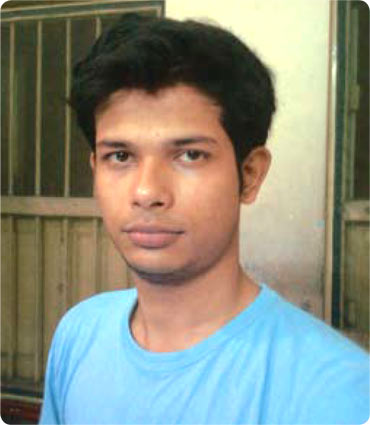
While a multitude of engineers are increasingly opting for career opportunities outside their primary field, some choose to pursue their passion by taking up research in their choice of specialisation. Meet the GATE toppers.
Understanding not coaching is important: Saswata Chakravarty
Graduation: Electrical Engineering
Institution: Jadavpur University
GATE score: 1000/ 1000
Rank: 1
PG option: ME System Science and Automation at Indian Institute of Science (IISc), Bangalore
Research Interest: Data mining and image processing
Expecting to score among the top 30, Saswata Chakravarty was pleasantly surprised to see that he had topped it. "It is not a tough exam to crack; you just need to be consistent with academics during engineering," he advises.
A consistent topper with 95 per cent in class 12 and 94 per cent in Class 10, Saswata pursued electrical engineering at Jadavpur University, Kolkata. He is keen to pursue higher studies in India since he feels the country has an abundance of good professors. Starting preparations in his final year, he initially picked up the subjects in which he was not proficient.
A period of intensive study set in during the last three to four weeks prior to the D-day, with Saswata taking a series of mock tests to know where he stood in comparison with his competitors.
He stresses that if you have a good understanding of the subject, coaching becomes unimportant. He wants to do research in data mining and image processing, after completing his ME at IISc.
Recommended reading
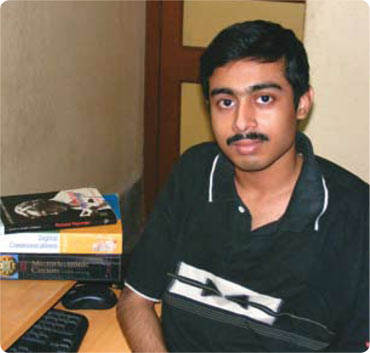
Graduation: Electronics & Communication
College: Jadavpur University
GATE score: 1000/ 1000
Rank: 2
PG option: ME Telecom Engineering at IISc, Bangalore
Research interest: Artificial intelligence and wireless communication
He stood eleventh in West Bengal in his SSC and ranked sixteenth in West Bengal Joint Engineering Entrance (WBJEE). Also a recipient of Jagdish Bose National Science Talent Search (JDNSTS) scholarship in his first year of engineering at Jadavpur University (JDU), Abhishek Sinha is not new to academic success.
Praising the research ambience and faculty at JDU, he feels the environment is motivating for students. He began preparing for GATE in his third year. "I attended classes regularly. Lots of subjects taught at the undergraduate level are common to the syllabus of GATE. You need to be clear about concepts. As GATE is practice-oriented, you need to work consistently," shares Abhishek.
Abhishek says, practising problems, making concepts crystal clear and consulting the last 10 years' question papers is essential. Memorising formulae will not be helpful as problems are not straightforward. "Coaching is not an absolute requirement. You need to have access to good books and good faculty," he recommends. Abhishek, who gave 10 mock tests as part of Gateforum's test series experienced that they also serve as a shot in the arm.
With over 1 lakh students competing in the stream, GATE is a very competitive exam, he stresses. He fell short of the top position by a mere third of a mark. If you aim to get into IISc, you need to work even harder, as only the top 30 make the cut.
"You have to be very motivated and clear about your goals to pursue research. Publish a lot of papers and keep abreast of the latest developments in your area of interest," concludes Abhishek, who wishes to do research in artificial intelligence and wireless communication.
Prep mantras (Electronics and Communication)
Network Analysis: Be conversant with mathematical techniques like Laplace and Fourier Transforms and various network theorems, as they often simplify a given problem. Also, you should possess a general understanding about network graphs like cut-sets, tie-sets, adjacency matrices and related concepts.
Communication theory: It requires a working knowledge of information theory and Shannon's result for an AWGN channel. Stress on various analog and digital modulation techniques and their SNR to Bandwidth trade-off as accomplished in practice.
Electromagnetism: A clear understanding of Maxwell's equations and their significance is essential. Master vector calculus should as early as possible. Also, study the science of electromagnetism from standard Physics textbooks like Classical Electrodynamics by JD Jackson.
Microelectronics: Focus on understanding the working of devices (books like that of SM Sze come very handy). You should clearly understand the concept of biasing of active devices and various biasing techniques. Study bipolar and CMOS technology thoroughly.
Recommended reading
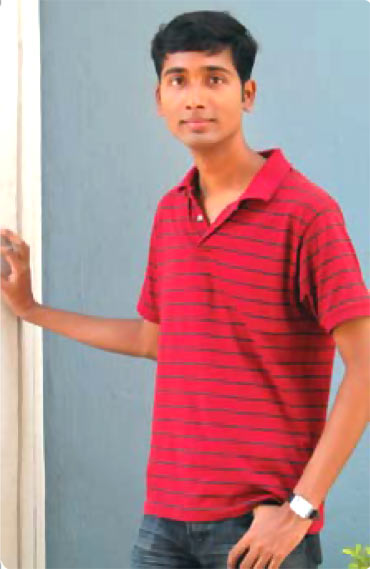
Graduation: Civil Engineering
Institution: Jadavpur University
GATE score: 1000/1000
Rank: 2
PG Option: ME Structural Engineering at IISc, Bangalore
Research interest: Understanding nuances of structural engineering
Shubhankar Roy Choudhary, a topper in the West Bengal Board exams (HSC/ class 12) and on top in the Civil Engineering Department of Jadavpur University, places JDU amongst one of the best universities in the region, second only to IIT Kharagpur.
Fascinated by structures, he has a deep urge to explore each and every aspect of structural engineering, a stream in which he intends to do his ME at IISc Bangalore.
"Prepare yourself well for the semester exams, study concepts carefully, and clear your doubts as you study the course. If one has studied religiously every semester, two to three months of preparation is sufficient," he elaborates.
"You must not skip any topic of the syllabus," he adds. Shubhankar does not recommend regular coaching, but stresses on taking mock tests, given the nature of the exam. A firm believer in the notion that engineering is incomplete without practical work experience, Shubhankar plans to do his PhD and also work with the industry soon.
Prep mantras (Civil Engineering)
Typically, many civil engineering students avoid studying mathematics; this is not a good strategy. Do not neglect Hydraulics. Basic topics like fluid statics, kinematics, dynamics, laminar-turbulent flow, pipe flow, open channel flow etc should be prepared properly.
In Highway Engineering, geometric design is more important than other areas such as different methods of road constructions, material properties and testing etc. Students often leave the part of Traffic Engineering; don't avoid it.
For subjects like Water, Waste water and Environmental pollution, you could opt for selective study if covering the entire syllabus is tough. For example, studying the biological characteristic of waste water is important if you want to score in the topic, Waste water.
Subjects like Theory of Structures, Strength of Material, Design of RC and Steel Structures (connection designs of steel structures is important). Soil Mechanics (Consolidation, Permeability, Slope Stability, Index properties), Foundation Design, Concrete Technology require detailed study.
Recommended reading
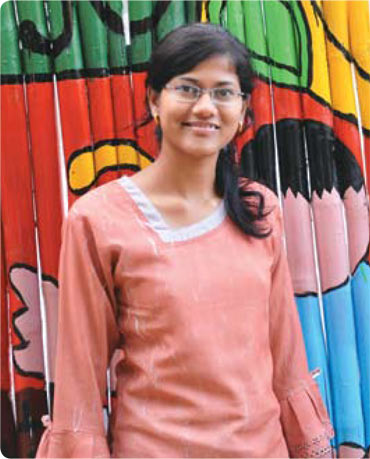
Graduation: Computer Science
Institution: NIT, Surat
GATE score: 1000/1000
Rank: 4
PG option: ME Computer Science, IISc at Bangalore
Research interest: High performance computing
In her school days Priyanka Agrawal was always fascinated by computers. Securing a BTech (Computer Science) seat at Sardar Vallabhbhai National Institute of Technology (NIT) served as an ideal opportunity for Priyanka to explore the subject further.
"Since the beginning of my BTech I was interested in research and decided to prepare for GATE in my third year," she says. She advises those aspiring for research to pursue it only if they are passionate about it. "Preparation for GATE is not a matter of a month or a day," she feels. Instead, consistency and a focused approach towards academics over the four years is what works, coupled with intensive hours of preparation just before the exam.
Priyanka started preparing in December 2009 and intensified her pace beginning January, According to her, to begin with, you must make sure your basics are clear. Go back to your books and question papers to get an idea about the kind of questions asked. However, questions can be framed in different ways, hence clear concepts are necessary, she said.
Priyanka, who has already interned at Indian Institute of Science (IISc), wants to pursue research in high performance computing there. An active participant in coding competitions, she was among the 22 finalists for the '2010 Google India Women in Engineering Award' and was invited to the conclave at Google, Hyderabad. In the future, she wants to create innovations using computers to benefit the society.
Prep mantras (Computer Science)
Operating system has considerable weightage, with deadlock and scheduling being more important.
In compilers, parsers are more important. Try memorising their different categories.
In DBMS, apart from normal query-based problems, normalisation and transaction control are central.
Practise the numerical in networks.
Recommended reading
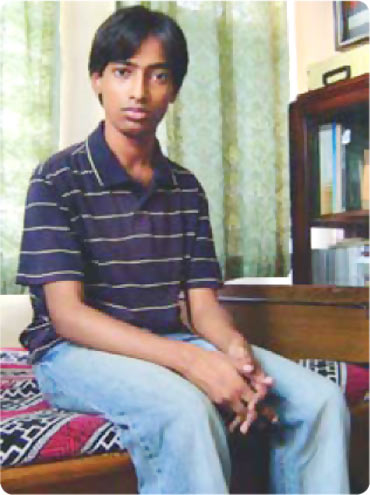
Graduation: Electronics and Communication
Institution: Jadavpur University
GATE score: 1000/1000
Rank: 5
PG option: ME Signal Processing at IISC, Bangalore
Research interest: Artificial intelligence, evolutionary computing
Sayan Ghosh, with 95.4 percent in Class 10 and 94.3 percent in ISC/Class 12, stood 61st in West Bengal Joint Entrance Test (WBJEE). He decided to pursue Master's after engineering, at Indian Institute of Science, Bangalore.
"If you are giving GATE, you should have an aptitude for engineering and should not take it up just because your parents want you to," he says. He believes that GATE is a more concept-based examination and requires 6 months of planning and preparation as opposed to 2 years for IIT-JEE.
Sayan made a book of concepts for different subjects and read one or two standard books for every subject. He
says coaching is helpful only for mock tests, which can evaluate your performance on a larger scale.
Since GATE is primarily a test of understanding, Sayan says he focussed on getting basic concepts correct, especially computing. Artificial Intelligence has been an abiding passion for Sayan.
"I have always been fascinated by the power of a computing device," he says.
He is inspired by Lofti Zadeh, a mathematician, electrical engineer, computer scientist and also a professor at University of California, known for seminal work on fuzzy sets.
Sayan has published several papers on artificial intelligence and evolutionary computing, subjects in which he aims to pursue research.
Prep mantras (Electronics and Communication)
Recommended reading